Bill Venners, Artima

Bill Venners is president of Artima, Inc., publisher of Artima
Developer (www.artima.com). He is author of the book, Inside the Java
Virtual Machine, a programmer-oriented survey of the Java platform's
architecture and internals.
His popular columns in JavaWorld magazine
covered Java internals, object-oriented design, and Jini. Active in
the Jini Community since its inception, Bill led the Jini Community's
ServiceUI project, whose ServiceUI API became the de facto standard
way to associate user interfaces to Jini services.
Bill is also the lead developer and designer of ScalaTest, an open source testing tool for Scala and Java developers, and coauthor with Martin Odersky and
Lex Spoon of the book, Programming in Scala.
Cay Horstmann, San Jose State University
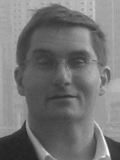
Cay Horstmann is author of Core Java (Sun Microsystems Press 1996-2004), Enterprise Java for Elvis (Sun Microsystems Press, to appear), and co-author of Core JSF (Sun Microsystems Press 2004)
Cay is professor of computer science at San Jose State University. He is a computer science series editor at Prentice-Hall and a frequent speaker at computer industry conferences.
For four years, Cay was VP and CTO of an Internet startup that went from 3 people in a tiny office to a public company.
Lynne Rosenthal
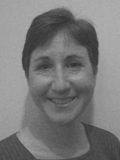
Lynne Rosenthal is the manager of the Information Systems Group at the National Institute of Standards and Technology's Information Technology Laboratory. She is responsible for the development of software conformance test methods for promoting quality development and accelerating implementations and use of information technology.
Ms. Rosenthal has developed conformance tests for several standards and
currently leads a team of NIST scientists in the development of standards and test methods for U.S. voting systems. She was instrumental in defining the conformance strategy and model for the recent ANSI/Health Level Seven (HL7) Standard for Electronic Health Record Systems.
Ms. Rosenthal has been an active member of the World Wide Web Consortium (W3C), the Organization for the Advancement of Structured Information Standards (OASIS), HL7, and the International Standards Organization (ISO) and American National Standards Institute (ANSI) Technical Committees on Computer Graphics. While a member of these groups, she has co-authored several guidelines and specifications on quality assurance, conformance, and testing.
Her most recent publications include, Leveraging a Common Development Framework and Delivery Approaches through Effective Software Management, Software Validation, and How to Guide for Creating Functional Electronic Health Care System Profile.
Michael Ashley
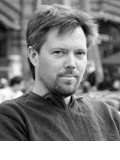
Michael Ashley is currently Development Director for Cultural Heritage Imaging, a California not-for-profit working on state-of-the-art imaging and semantic management tools for digital conservation. He received his Ph.D. at the UC Berkeley, where he continued to work as staff in the Office of the Chief Information Officer and Data Services.
He co-founded several initiatives, including the award winning Open Knowledge and the Public Interest (okapi.berkeley.edu), and the Media Vault Program, which seeks to develop digital preservation frameworks for research and scholarship. Dr. Ashley has more than 16 years of experience in cultural heritage informatics management and education.
He is Chair of the IT and Communications Task Force for the World Archaeological Congress and on the Society for Historical Archaeology Website Advisory, and is specifically interested in developing international standards for the preservation of cultural and digital heritage.
An archaeologist by training, he was the Media Team specialist for the Çatalhöyük Research Project for more than 7 years and has worked on several heritage preservation projects worldwide. Email: archaeology@mac.com
Michael Van Riper

Michael Van Riper has a Bachelors in Computer Science from
MIT. Van has more than 20 years of experience as a software engineer
in Silicon Valley.
He was a core member of the engineering team at Adobe that built the award winning Adobe PageMill web authoring program. Since 1999, he has focused on developing web applications in Java. He is currently a Principal Engineer at Krillion in Mountain View, California.
He also leads the Silicon Valley Web JUG and the Silicon Valley Google Technology User Group. Van was selected as a Sun Java Champion in 2008 for his work in the Silicon Valley and International Java User Group communities.
Patrick Curran, JCP

Patrick Curran is Chair of the JCP. In this role he oversees the activities of the JCP Program Office including driving the process, managing its membership, guiding specification leads and experts through the process, leading the Executive Committee meetings, and managing the JCP.org web site. Patrick has worked in the software industry for more than 20 years and at Sun for 15 years. He has a long-standing record in conformance testing, and most recently led the Java Conformance Engineering team in Sun's Client Software Group. He was also chair of Sun's Conformance Council, which is responsible for defining Sun's policies and strategies around Java conformance and compatibility.
Patrick has participated actively in several consortia and communities including the World Wide Web Consortium (W3C) (member of the W3C's Quality Assurance Working Group, co-chair of the W3C Quality Assurance Interest Group), and the Organization for the Advancement of Structured Information Standards (OASIS)(co-chair of the OASIS Test Assertions Guidelines Technical Committee). Patrick maintains a blog here
Rod Johnson, Creator of Spring
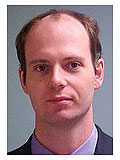
Rod is the father of Spring. The Spring Framework open source project began in February 2003, based on the Interface21 framework published with Rod's best-selling Expert One-on-One J2EE Design and Development.
Rod is one of the world's leading authorities on Java and J2EE development. He is a best-selling author, experienced consultant, and open source developer, as well as a popular conference speaker.
Rod's best-selling Expert One-on-One J2EE Design and Development (2002) was one of the most influential books ever published on J2EE. The sequel, J2EE without EJB (July 2004, with Juergen Hoeller), has proven almost equally significant, establishing a comprehensive vision for lightweight, post-EJB J2EE development.
Rod has extensive experience as a consultant in a wide range of industries: principally, finance, media and insurance. He has specialized in server-side Java development since 1996. Prior to that, he worked mainly in C and C++. His experience as a consultant has led him to see problems from a client's perspective as well as a technology perspective, and has driven his influential criticism of bloated, inefficient, orthodox approaches to J2EE architecture, which have delivered very poor results for stakeholders.
Rod is the founder of the Spring Framework, which began from code published with Expert One-on-One J2EE Design and Development. Along with Juergen Hoeller, he continues to lead the development of Spring.
He regularly speaks at conferences in the US, Europe and Asia, including the ServerSide Symposium (2003, 2004, 2005 and 2006), JavaPolis (Europe's leading Java conference) in 2004 and 2005, JavaZone (2004 and 2005) and JAOO (2004). He was awarded a prize for giving one of the top 20 presentations (by evaluation) at JavaOne in 2005, and delivered keynotes at the JavaWorld conference in Tokyo, June, 2005, the JAX conference in Munich (October, 2005) and the Spring Experience conference in Bal Harbour, Florida, in December 2005.
Rod serves in the JCP on the Expert Groups defining the Servlet 2.4 and JDO 2.0 specifications. His status as a leader in the Java community has been recognized through his invitation to Sun's Java Champions program. Rod continues to be actively involved in client projects at Interface21, as well as Spring development, writing and evangelism.
Stephan Janssen, Parleys.com and Javapolis Founder
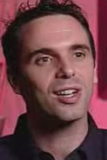
Stephan Janssen is a serial entrepreneur that has founded several
successful organizations such as the Belgian Java User Group (BeJUG)
in 1996, JCS Int. in 1998, JavaPolis in 2002 and now Parleys.com in
2006.
He has been using Java since its early releases in 1995 with
experience of developing and implementing real world Java solutions in
the finance and manufacturing industries. Today Stephan is the CTO of
the Java Competence Center at RealDolmen.
He was selected by BEA Systems as the first European (independent) BEA
Technical Director.
He has also been recognized by the Server Side as one of the 54 Who is
Who in Enterprise Java 2004.
Sun has recognized in 2005 his efforts for the Java Community and has
engaged me in the Java Champion project.
He has spoken at numerous Java and JUG conferences around the world.











